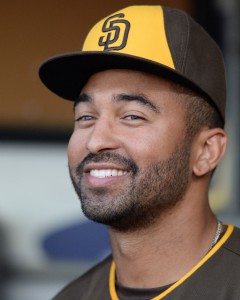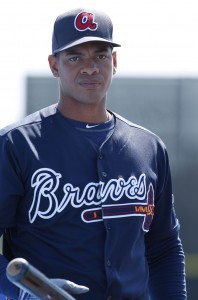A grand jury has been convened as part of a federal investigation into Latin American amateur signings by Major League Baseball clubs, according to a report from Jeff Passan of Yahoo Sports. It’s a notable development in a segment of the baseball labor market long noted for its shadowy dealings.
Full details are not yet known. As Passan explains in this must-read article, however, the potential scope of the investigation is vast. After all, ballplayers from Latin American nations — in particular, the Dominican Republic, Venezuela, and Cuba — make up a significant portion of the game’s talent base. For decades, they have signed as teenagers under an obscure, largely unregulated system.
So-called “buscones” — alternatively framed as “trainers” or “finders” of young talent — play a notable role in the scheme. Characterizing them, though, quickly becomes complicated: root cause or symptom of systematic issues? scourge or part of the solution? There are differing perspectives, both on the system as a whole and the individuals involved.
A recently initiated MLB clean-up effort notably seeks to bring buscones into the process more formally. Of course, they don’t exist in a vacuum. The broad grey area in which they interact with representatives of MLB organizations and player agents is where the business of Latin American baseball occurs. Millions upon millions of dollars change hands in that foggy world, with some of the game’s brightest future stars emerging in one of thirty uniforms.
So, where’s the focus here? Passan writes that the specific “target of the inquiry” is not yet fully certain. But it seems that the 2015 signing of Cuban infielder Hector Olivera by the Dodgers is at least one area of interest, with a “former Atlanta Braves official” (the organization acquired Olivera later that year) and certain unnamed “people involved with the signing” receiving subpoenas.
Olivera received a hefty $28MM signing bonus as part of a $62.5MM total guarantee. Of course, he was excluded from the much more restricting parameters that govern the signings of younger players. The rules — as recently amended — create a hard cap on the amount of total bonuses each MLB team can dole out in a given year.
Whether the Olivera situation is of singular interest or just one element of the inquiry isn’t quite clear. But there’s little question that the duration and breadth of the Latin American signing game offers quite a few more potential targets to investigate. An array of club officials and agency personnel have certainly been involved over the years, with untold numbers of middle men and peripheral figures in addition to the well-known buscones.
Even more broadly, Major League Baseball and the MLB Players Association have undeniable roles in all of this. Whether foreign governmental officials could be involved, potentially raising the stakes, isn’t know, though Passan notes that the matter involves Justice Department attorneys who prosecute actions under the Foreign Corrupt Practices Act.
It’s not yet known how the investigation will proceed, where it will reach, and what the potential and actual consequences will be. As Passan writes, though, it has “spooked” the “top officials on both sides” — that is, the league and the union. And it’s amply arguable that a full accounting of MLB’s involvement in Latin America is warranted.

